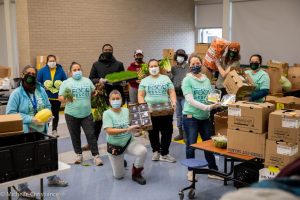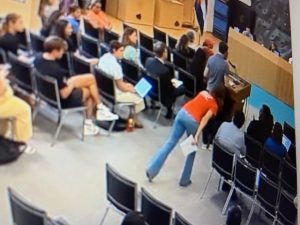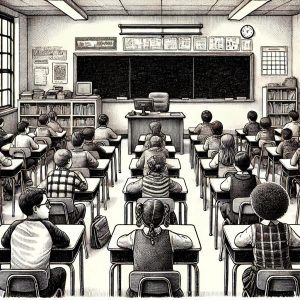Denver school board member John Youngquist is alleging that the board violated state open meetings law by misstating the purpose of a recent executive session, and by excluding him from that session because it dealt with a matter he had raised about his compensation.
Commentary
The recently released school board evaluation of Denver Public Schools Superintendent Susana Cordova is a vague document that sheds light on little more than board members’ divisions over her future.
Pandemic pods raise complex issues, and there are valid arguments in support and opposition.
The 6-1 vote masks significant divisions on the board and, more importantly, indefinitely delays the development of any kind of new accountability system parents can use to figure out which schools would work best for their children.
What if we put aside for a moment labored debates about how to get kids and teachers back into school safely for as many days as possible, whether or not to mandate masks, and how many hours a day of screen-based learning is too much? What if, instead of being paralyzed by fear, we moved forward in hope for a better transformed tomorrow?
A new report from A+ Colorado highlights the importance of transparent, collaborative, and vulnerable conversations about where we are and where we go in education. Now is the time to share all available information across district, professional, and political lines.
Should parents be deprived of data on school performance because they might “weaponize” it? One Denver school board member said as much Thursday.
If you’re like me and following the debate on proposed changes to the way schools are measured in Denver, you too may have concluded the color-coded school report cards – known as the School Performance Framework or SPF – do not necessarily reflect the culture of a school, or how satisfied a learner your child might be – even at a highly rated school. Color me disappointed with the SPF’s efficacy informing parents.
“Pandemic pods” have the potential to widen already gaping opportunity gaps. But there are ways to minimize the negative collective impacts.
Mike Miles, CEO of First Future Schools, has deftly threaded the needle in a letter to his staff about reopening school next month. Read the full letter here.


















UPDATED: DSST Noel vote: Will data prevail?
UPDATED: The Denver school board has decided to postpone its vote on allowing a DSST Rachel Noel High School to open next year. District officials worked this week with board members and DSST leadership to craft a compromise, but were unable to come up with a solution. An agreement satisfactory to all seemed a distant prospect at best.